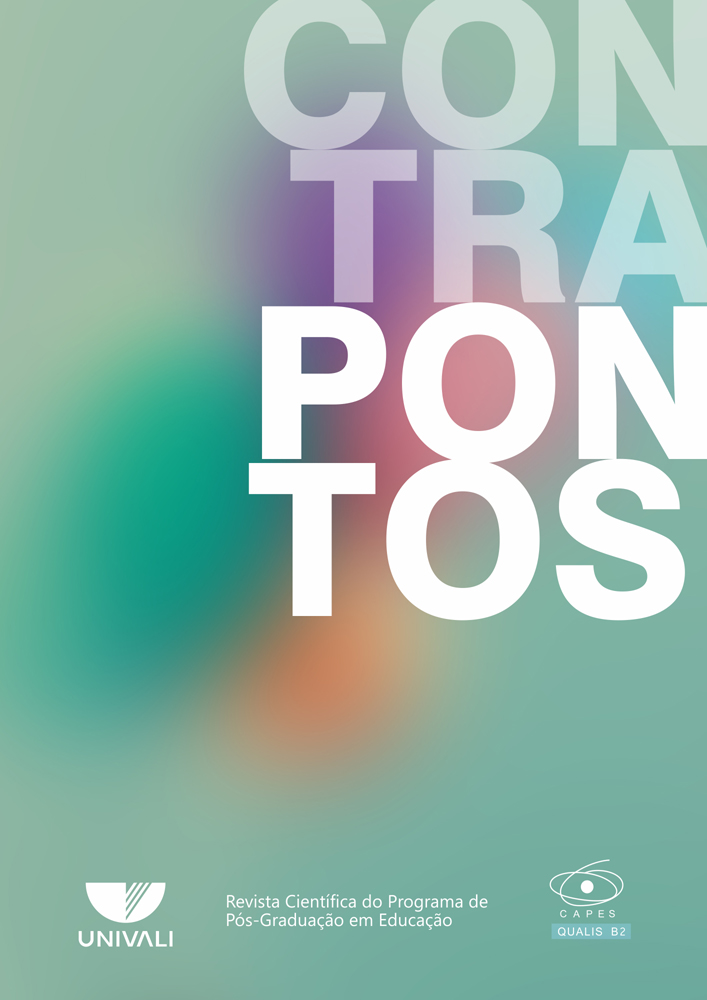VITALISMO FILOSÓFICO EN NIETZSCHE: FUNDAMENTOS EPISTEMOLÓGICOS Y LA VALORIZACIÓN DEL ARTE EN LA EDUCACIÓN
DOI:
https://doi.org/10.14210/contrapontos.v20n1.p138-146Palabras clave:
Nietzsche, Epistemología, Filosofía de la Educación, Educación, Estética.Resumen
Esta investigación busca responder la cuestión de la posible relación entre la posición epistemológica de Nietzsche y el papel del Arte en la Educación. Para eso, estudiamos los fundamentos epistemológicos de la filosofía nietzscheana, en especial la temática relativa a la verdad, a la crítica, a la supervalorización de la razón y a una sabiduría al servicio de la vida. En seguida, examinamos las consecuencias educacionales de un pensamiento vitalista. Metodológicamente, realizamos investigación bibliográfica, investigando relevantes obras de Nietzche sobre el tema, bien como de comentadores de su filosofía. En la composición del texto, organizamos seis secciones: Introducción; La cuestión de la verdad en Nietzsche; Filosofía tradicional y supervalorización de la razón; Una filosofía al servicio de la vida; Implicaciones Educacionales; y Consideraciones Finales. Con la investigación, podemos concluir que el Arte tiene papel esencial en la Educación, inspirada en el vitalismo nietzschiano, lo que nos interpela sobre el lugar como sociedad hemos dado a la dimensión estética en el ámbito educacional contemporáneo.Descargas
Publicado
2021-03-07
Número
Sección
Artículos
Licencia
Ao encaminhar textos à revista CONTRAPONTOS, o autor estará cedendo integralmente seus direitos autorais da obra à publicação. O trabalho publicado é considerado colaboração e, portanto, o autor não receberá qualquer remuneração para tal, bem como nada lhe será cobrado em troca para a publicação. Os textos são de responsabilidade de seus autores. Citações e transcrições são permitidas mediante menção das fontes.

Este obra está licenciado com uma Licença Creative Commons Atribuição 4.0 Internacional.

